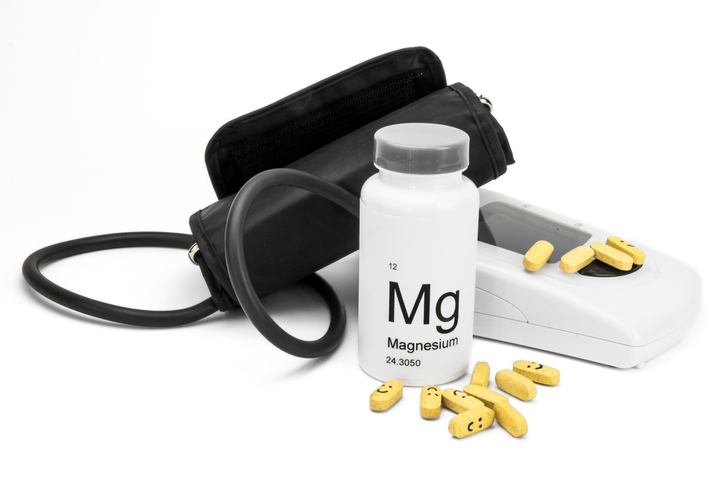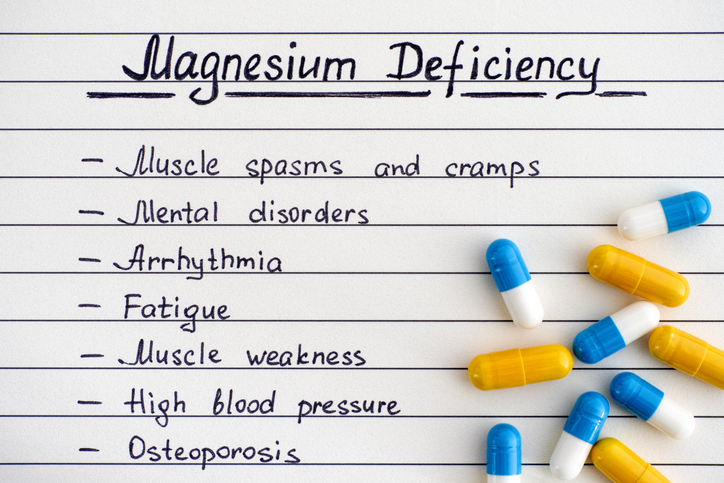
Let’s Win The Fight Against Hypertension. Are You Getting Enough Magnesium?
By Joy Stephenson-Laws, Founder
We have to connect the dots when it comes to our health. For example, heart disease is the leading cause of death in both men and women in the United States. Furthermore, hypertension (high blood pressure) is one of the primary risk factors for heart disease.
In case you need a quick lesson or a refresher, blood pressure is the pressure of blood pushing against the walls of your arteries. These arteries transport blood from the heart to other areas of the body.
“Blood pressure normally rises and falls throughout the day, but it can damage your heart and cause health problems if it stays high for a long time,” reports the Centers for Disease Control and Prevention.
It is estimated that one in three U.S. adults are hypertensive. This means that more than 100 million people in this country have high blood pressure!
And in addition to high blood pressure being a major risk factor for heart disease and other cardiovascular issues, having hypertension may even be linked to the development of dementia.

“Recent studies show that high blood pressure is linked to a higher risk for dementia, a loss of cognitive function. Timing seems to matter: Some evidence suggests having uncontrolled high blood pressure during midlife (age 45 to 65) creates a higher risk for dementia later in life. The takeaway? It’s never too early to start thinking about your blood pressure and taking steps to manage it,” reports the CDC.
I couldn't agree more with this takeaway, especially because many people who have hypertension don’t even know that they have it. Most of the time, a person who has hypertension will not have any symptoms.
“High blood pressure is a largely symptomless ‘silent killer.’ If you ignore your blood pressure because you think a certain symptom or sign will alert you to the problem, you are taking a dangerous chance with your life,” according to the American Heart Association.
At-home blood pressure monitoring may be key in catching high blood pressure. But as I always like to say, prevention is better than cure. And one of the ways we can help prevent high blood pressure is by maintaining a healthy diet void of excessive amounts of sodium (salt). It’s also extremely important to be aware of specific nutrients that may help prevent high blood pressure or help manage it.
Magnesium appears to be one of these nutrients.This mineral is known to help with blood pressure regulation. Magnesium is important when it comes to managing blood pressure levels. Magnesium and calcium work hand in hand to manage blood pressure and cardiovascular health. In fact, adding these minerals to your drinking water may even help fight hypertension, according to one study.
Researchers of the study came to this conclusion based on findings from observing blood pressure levels of people who live in coastal areas of Bangladesh impacted by seawater intrusion.
“The residents relied upon pond water or groundwater as their main water source.The study compared blood pressure levels among people who drank salinated water with those who drank freshwater. Even though sodium is known to increase blood pressure levels, study participants who drank the salinated water had lower blood pressure,” according to one report discussing the study.
This may seem shocking because consuming a lot of salt is linked to the development of hypertension, but the results of the study suggested that the people who drank the salinated water had lower blood pressure because this water also had significant amounts of calcium and magnesium.
I am not suggesting people start drinking salinated water, however, I am highlighting this study to show just how important magnesium is and how supplementation with magnesium may be necessary for some.
Magnesium comes in many forms.
There are so many delicious, healthy foods that contain magnesium including leafy green vegetables, whole grains, nuts, salmon, avocados and bananas.
There are also 11 types of magnesium that you should educate yourself about. And if you do have hypertension, you need to know about magnesium orotate.
It is also highly advised to take routine nutrient tests in order to see if you are deficient in magnesium or have any other nutrient imbalances or deficiencies. If you are not nutritionally balanced, a competent healthcare professional can work with you on making the necessary dietary changes and recommend quality supplements if necessary.
As a final reminder, fight hypertension by getting enough magnesium, exercising regularly, eating a nutrient-rich diet, avoiding smoking and drinking alcohol in moderation if at all.
Enjoy your healthy life!
The pH professional health care team includes recognized experts from a variety of health care and related disciplines, including physicians, attorneys, nutritionists, nurses and certified fitness instructors. This team also includes the members of the pH Medical Advisory Board, which constantly monitors all pH programs, products and services. To learn more about the pH Medical Advisory Board, click here.







